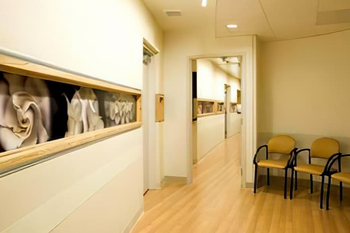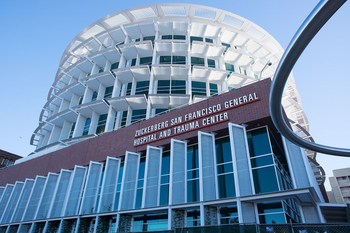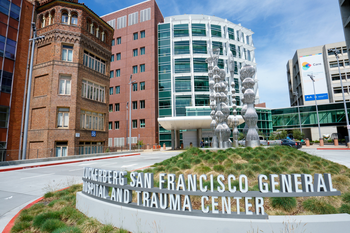At our UCSF Pregnancy Options Centers, we care for individuals seeking elective abortion, treatment for miscarriage, and pregnancy termination due to health problems of the mother or fetus. We also provide counseling and contraceptive options, including emergency contraception and medication abortion options.
Our centers' counselors provide individual counseling and patient education before the abortion and offer support during and after the procedure. Licensed nursing staff give patients the highest quality of care and support.
What Sets us Apart
Clinic Locations
View all locationsLeading the Conversation
Study led by UCSF estimates 3% to 5% of women have unplanned pregnancies following ‘permanent’ sterilization.
For the first time in 2023, there were more births among women 40 and older than there were to teenage girls, according to a government report.
Ushma Upadhyay, PhD, MPH, professor in UCSF’s Department of Obstetrics, Gynecology & Reproductive Science, is co-leading the #WeCount study to document the shifts in abortion access in states post-Roe and is researching the expansion of abortion services through telehealth.
Cynthia Harper, a professor of obstetrics and gynecology at the U.C. San Francisco School of Medicine and a researcher on contraceptive access and equity, says that the over-the-counter pill is “wonderful” news, especially for “people who can’t make regular doctor’s hours, because of work or school schedules, and for people living in rural areas” that might lack a health-care center that they can easily get to.
The main finding of The Turnaway Study is that receiving an abortion does not harm the health and wellbeing of women, but in fact, being denied an abortion results in worse financial, health and family outcomes.
Latino mothers and their teens in rural California discussed how they communicate about sex and relationships.
In this cross-sectional study of 6956 people assigned female at birth, people with disabilities across disability domains (hearing, vision, mobility, activities of daily living, and communication) and status experienced considerably more barriers in trying to access RH care in the past 3 years compared with people without disabilities.
Latinx attitudes and decision-making surrounding abortion is not monolithic. Abortion care delivery should be individualized and efforts should continue to assess the cultural and linguistic relevance of how services are delivered to the Latinx community.




